June 9, 2025 | 00:56 GMT +7
June 9, 2025 | 00:56 GMT +7
Hotline: 0913.378.918
June 9, 2025 | 00:56 GMT +7
Hotline: 0913.378.918
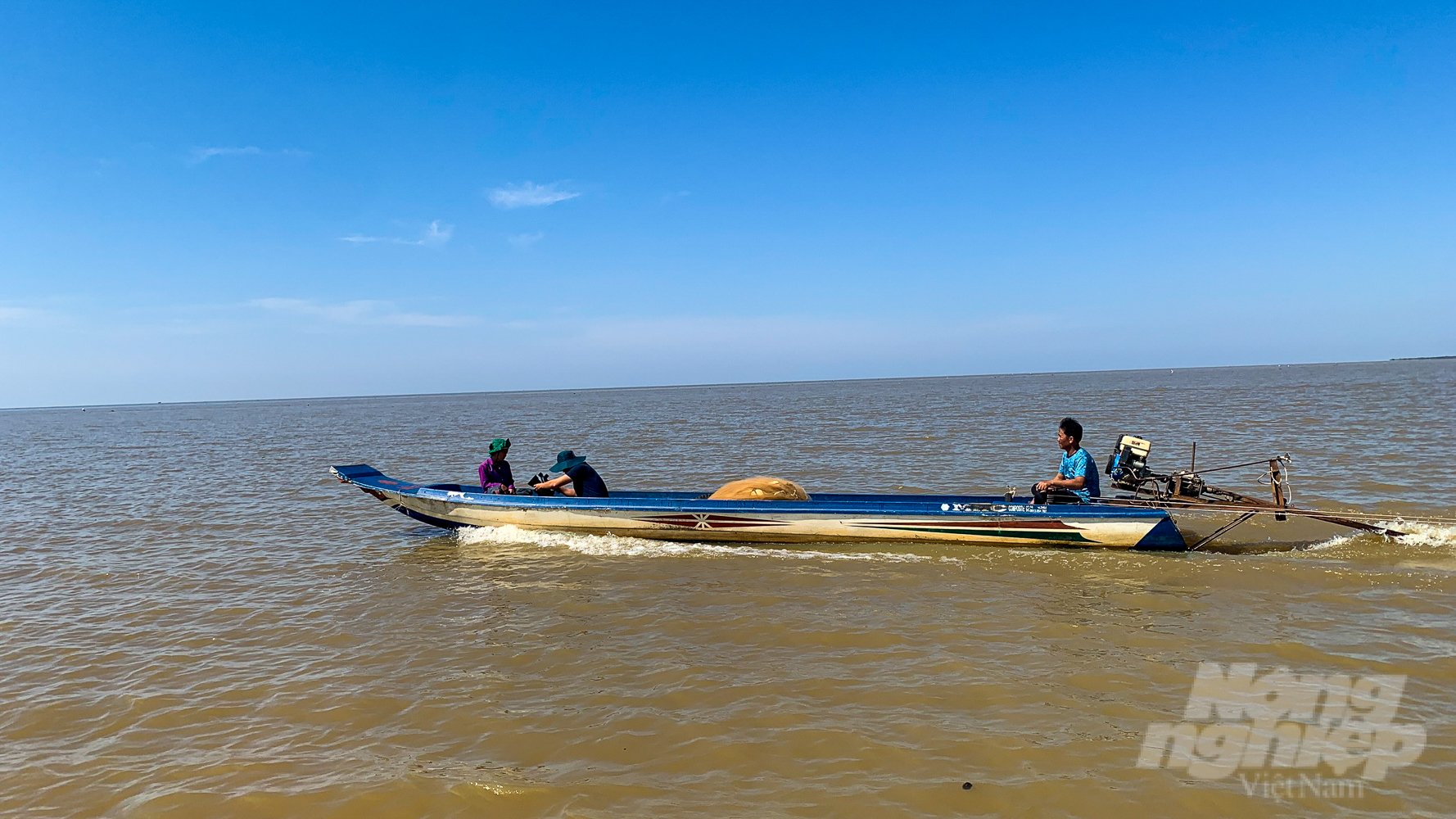
Most stations in the Mekong River basin tend to decrease and are lower than the average for many years. Photo: Kim Anh.
Recorded on August 29 by the ️Southern Institute of Water Resources Planning, the water level at most stations in the Mekong River basin tends to decrease. It is lower than the average for many years even though it is in the middle of the rainy season.
Specifically, the water level at 7 a.m. on August 29 at Chiang Saen station, Thailand, about 2,200km from Vietnam, was 2.89m and 3.04m lower than the average for many years.
At Mukdahan station, Thailand, nearly 1,000 km from Vietnam, the water level is 6.58m, 3.20m lower than in the same period in many years, and 1.67m lower than in 2022; 1.51m lower than in 2019; 0.67m lower than in 2015.
At Kratie station, Cambodia, more than 300km from Vietnam, the water level is 15.58m, 3.21m lower than the average of many years, 2.26m lower than in 2022, and 2.15m lower than in 2019.
At Tonle Sap Lake, which is considered the largest natural reservoir for the lower Mekong region, the water volume reached 17.74 billion cubic meters on the morning of August 29. Compared to 2022, the amount of water is 9.48 billion cubic meters less. Compared to the average of many years, the amount of water in Tonle Sap Lake is 12 billion cubic meters.
The water level at two stations in An Giang province changes with the tide and has been lower than the average for many years. On the morning of August 29 in Tan Chau station, the water level is 2.05m, 1.29m more melancholy than the average of many years. In Chau Doc station, the water level is 2.08m, also 0.81m lower than the average of many years.
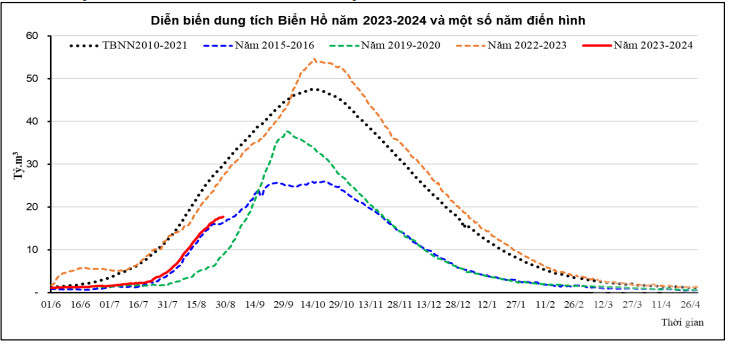
The chart shows the water volume of Bien Ho from the beginning of the rainy season to the present. Photo: Southern Institute of Irrigation Planning.
On the same day, the National Center for Hydro-Meteorological Forecasting said that the water level in the Mekong River's headwaters is rising with the tide. Forecast on September 2, the highest water level in Tan Chau station is 2.2m, and Chau Doc station is 2.1m.
The ️Southern Institute of Water Resources Planning forecasts that in the Mekong Delta, small floods may appear in early and mid-October. The rainy season may also end as early as the end of October, nearly a month earlier than the previous years.
The dry season of 2024 is less likely to have unseasonal rains. The amount of water is expected to be lower than in the same period every year. In particular, high tides can increase the risk of saline intrusion. The situation is forecasted to be severe from February to May 2024.
The upstream flood is decreasing and expected to continue this week. However, from now until the end of the rainy season, the Mekong Delta is still at risk of heavy rain due to the influence of storms and tropical depressions in the East Sea.
The Southern Institute of Water Resources Planning recommends that provinces in the Mekong Delta closely monitor weather forecast information to develop appropriate response plans promptly.
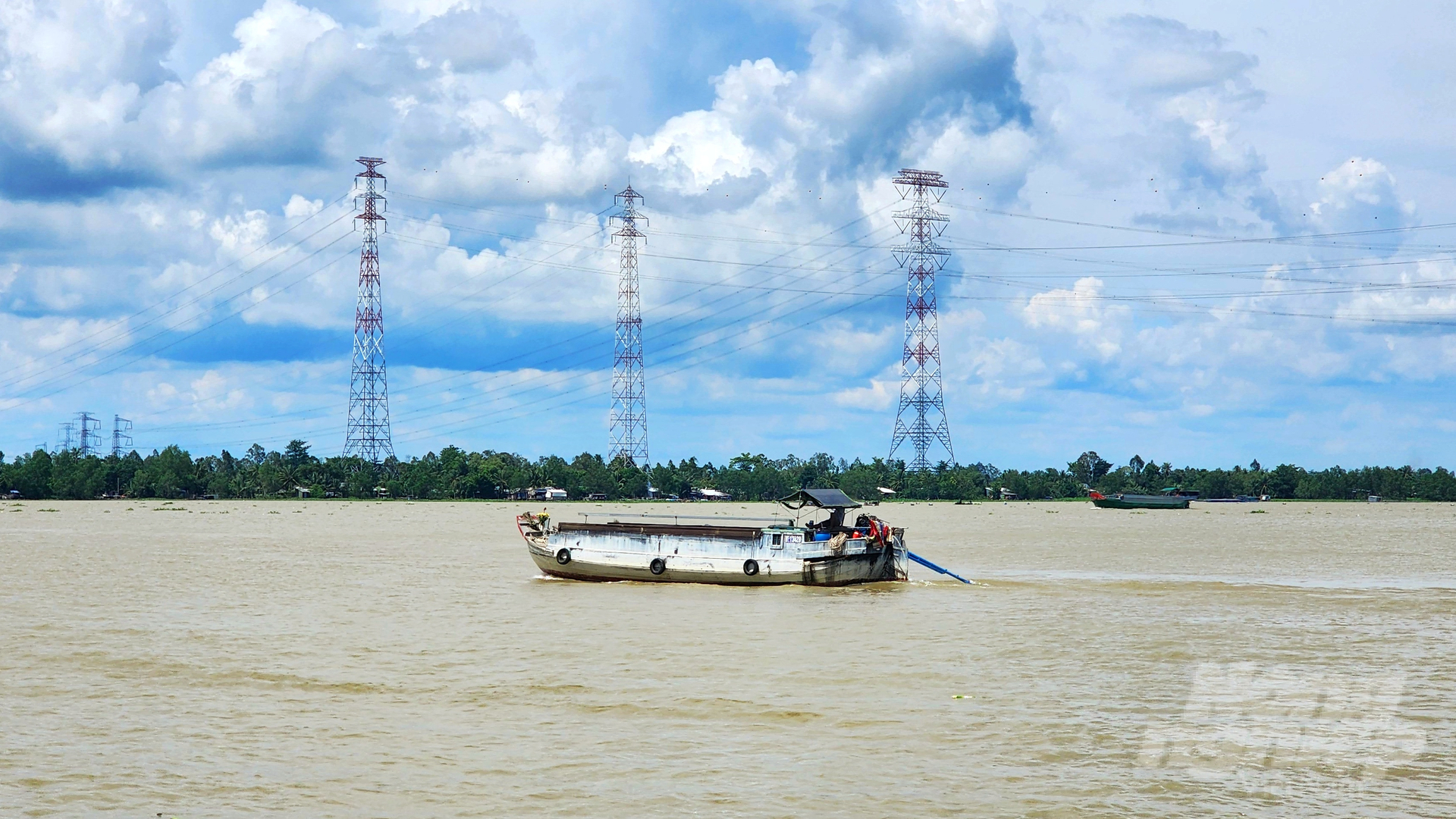
The Southern Institute of Irrigation Planning predicts that there will be small floods in the West in early and mid-October, and the rainy season may end early in October. Photo: Kim Anh.
Previously, the Mekong River Commission (MRC) has forecast that August is expected to be moderately dry in the upper north, severely and extremely dry in the west, covering mainly Thailand, and extremely dry in the southeast, covering southern Laos and 3S areas (includes three rivers Sekong, Srepok and Sesan).
In September, Xayaburi, Vientiane, and Luang Prabang of northern Laos are likely to be hit by moderate drought, while central Laos in the eastern Lower Mekong River Basin (LMB) will likely face some moderate and severe droughts.
In October, moderate and severe droughts are forecasted for the LMB's northwest, west, and southwest areas, covering some areas of northern Laos, Thailand, and north-western Cambodia. Most parts of Laos and Vietnam are likely not at any risk.
"The LMB has received more than average rainfall in August alone, or approximately 40% higher than it was in 2021 and 2022 over the same period", Sothea Khem, the MRC Secretariat Flood Forecasting Specialist said.
Due to low pressure in the LMB, Dr Khem adds, some parts of Laos and Thailand were hit harder by flash floods last weekend. The situation has since increased water levels and affected properties and livelihoods.
The Mekong Delta has 70 water level forecasting stations, including four stations on the mainstream and 66 stations in the inland area.
Translated by Tu Quyen

(VAN) The benefits brought by the EVFTA are particularly significant, as the EU has consistently been one of Vietnam's four largest export markets for agricultural, forestry, and fishery products.
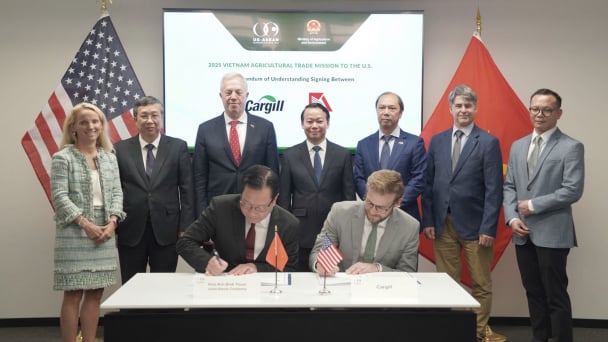
(VAN) Vietnam agribusinesses accompanying Minister Do Duc Duy signed agreements worth $1.1 billion, raising the total number of MOUs during the trip to 20, with a combined value approaching $3 billion.
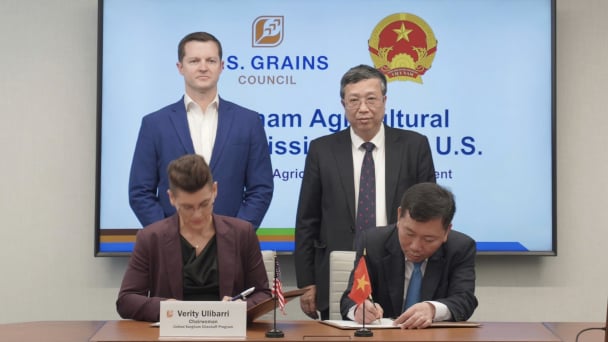
(VAN) The U.S. Grains Council signed a 5-year cooperation agreement with the Partnership for Sustainable Agriculture in Vietnam (PSAV) during MAE's agricultural trade mission.
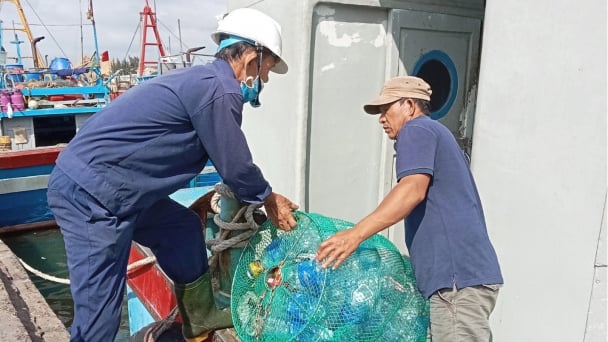
(VAN) Vietnam Agriculture and Nature News interviewed Mr. Vu Thai Truong, Acting Head of Climate Change and Environment at UNDP Vietnam on the occasion of World Environment Day (June 5).

(VAN) On June 5, Deputy Minister of Agriculture and Environment Phung Duc Tien held a working session with the Directorate-General for Maritime Affairs and Fisheries of the European Commission (DG MARE).
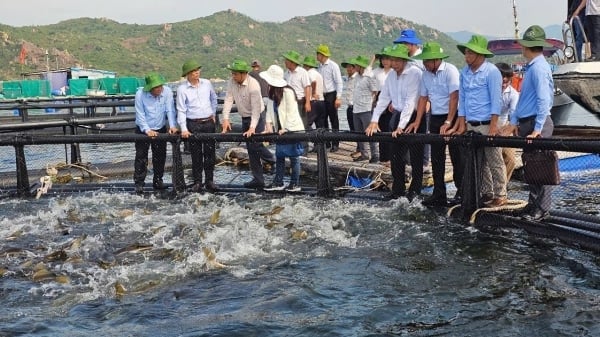
(VAN) According to Prof. Dr. Mai Trong Nhuan, former Director of Vietnam National University, Hanoi, the national ocean spatial plan is devised to guide the ocean economy toward achieving its key objectives.
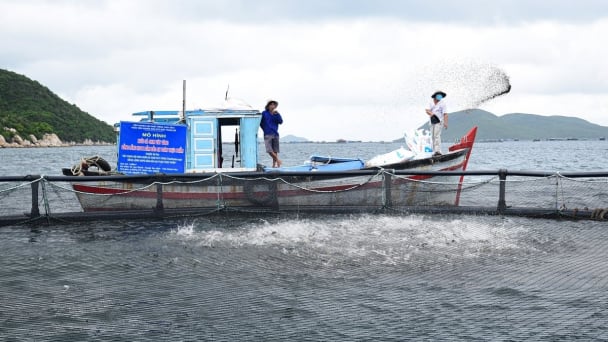
(VAN) Vietnam’s aquatic resources decreased from over 5 million tons in the period 2000-2005 to just over 3.9 million tons in the period 2016-2020.